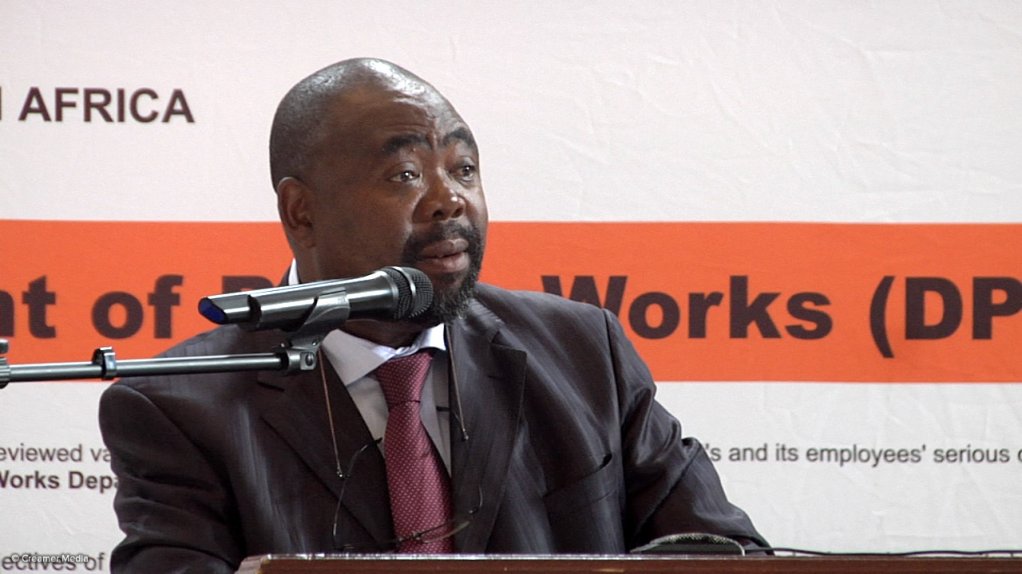The content on this page is not written by Polity.org.za, but is supplied by third parties. This content does not constitute news reporting by Polity.org.za.
Last week Cabinet approved the business case for the establishment of the Property Management Trading Entity as a Government Component under the Minister of Public Works. This represents a significant milestone both for the Department of Public Works and for government. In finalising the Business Case and plan, we worked very closely with National Treasury and DPSA (Public Service and Administration), and received a lot of input and support from the responsible Cabinet Committee (ESEID).
Background
Cabinet approval last week represents the culmination of two years of work, which we called the stabilisation phase of the Turnaround Plan for the Department of Public Works. The PMTE Account constitutes 75% of the work and budget of Public Works. It is the largest property portfolio in South Africa. But it has been mismanaged, lacking the requisite skills in Asset Management, Property Development, Real Estate and Facilities Management.
Stabilising DPW required that we tackled the systemic weaknesses in the core property business of the department which manifested in:
- recurrent negative audit findings over the previous 8 years
- major problems with private leases (involving media scandals)
- often sub-standard government facilities
- no planned maintenance – stripping out value from state assets
- inadequate controls and security – leading to vandalism, hijacking and illegal occupation
- massive under-utilisation of state properties
- major costs to the state – as a result of leasing-in instead of developing our own assets.
Objectives of PMTE:
The major objectives in operationalizing the PMTE are as follows:
- to professionalise and better manage the state’s property portfolio;
- to implement cost savings to client departments;
- to improve the quality of government services to the public by improving access and the quality of public buildings;
- to utilise the state’s vacant properties productively;
- to leverage the state’s property portfolio to empower emerging lack business and to create employment.
DPW Turnaround Plan: 2012-2014
Major achievements thus far in relation to the property business include the following:
Establishment of a comprehensive Immovable Assets Register, with 95% physically verified (This is a first in the history of the South African state).
- Some findings:
- 112,000 state properties on approx. 33,000 land parcels (mostly used by government departments; but approx. 30,000 buildings are not utilised currently).
- Instead of using our own accommodation, the trend has been towards leasing-in for government accommodation (currently 2,700 properties leased at a cost of R3.2 billion to the fiscus, also provides opportunities for corruption.)
- We have identified properties which may have been illegally transferred from the state. These will be forensically investigated and action taken as part of our ‘Bring Back Campaign’.
Leases with National Treasury. We conducted an audit of the 2,700 private leases.
This has led to:
- Strengthening of lease management systems
- Renegotiated leases downward in 50% of cases (with savings of over R30 million per annum).
- Treasury placed a 5.5% ceiling on escalation of leases (i.e. below inflation) – with further savings to the state. Most major property firms accepted these terms.
- The Audit also highlighted leases where fraud and collusion is suspected (e.g. empty buildings we are paying for) for forensic investigation.
These fundamental improvements in the core property business, meant that we have also improved our audit findings over the last two years. DPW went from a disclaimer to unqualified opinion; PMTE went from disclaimer to qualified opinion. With National Treasury’s Technical Advisory Unit (TAU) we developed the Business Case for the establishment of PMTE as a Government Component.
The case for a Government Component:
- Compliance with best accounting principles (GRAP – Generally Recognised Accounting Practice)
- Ability to generate and plough back revenue (optimising value of state assets)
- More flexible HR practices to employ professionals from the private sector on short-term performance contracts
- The Component reports directly to the Minister. There is no question of privatisation or ‘agentisation’, and there are no boards.
The objective of operationalising PMTE as a Government Component is to ring-fence and professionalise the management of state property.
The business model of PMTE:
We have said that the state’s property portfolio is massive, but there is not going to be funding to employ an army of property managers.
This is what we have proposed:
- In terms of Facilities Management (particularly maintenance of facilities), we are working with DTI and Small Enterprise Development to establish co-ops and support small businesses to undertake this work. They will also be supported by DPW workshops which are being revived in the main centres.
- In relation to the Real Estate part of the business (leasing out our unutilised stock), we intend to work with emerging black estate agents to market our investment stock and manage the leasing-out.
In addition the business model calls for:
- At a strategic level, employment of experienced property professionals on performance contracts;
- Retraining of existing staff in property management;
- Supporting youth through professional skills development and apprenticeships (in property and construction) in partnership with professional councils, FETCs (Further Education and Training Colleges) and universities.
This then is the big picture here:
- To ring-fence, better manage and optimally utilise this massive state property portfolio to build value and to bring savings to the state as well as other socio-economic benefits, particularly job creation and empowerment, whilst improving service to client departments.
Issued by: Department of Public Works ![]()
EMAIL THIS ARTICLE SAVE THIS ARTICLE
To subscribe email subscriptions@creamermedia.co.za or click here
To advertise email advertising@creamermedia.co.za or click here











